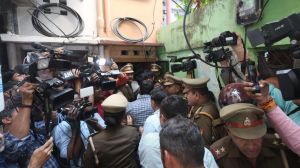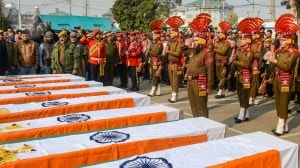Cairo calling
Reaching out to Egypt as it prepares for free elections.
The day after the revolution is euphoric but always messy. The old order has crumbled,the dictator has been deposed,but the orderliness of the longed-for democracy is nowhere in sight. Egypt,after its glorious 18-day revolution,is in that inevitable but often unenviable state of uncertainty. And ordinary Egyptians are impatient to get their country in order. Even as internally Egypt is setting the pace of reforms an army-appointed panel has proposed a set of constitutional reforms that will eventually be put to a public referendum the international community has to step up in facilitating,as Cairo seems fit,its peaceful transition to democracy.
It is in this context that it was suggested,first by US Secretary of State Hillary Clinton in a telephone conversation with External Affairs Minister S.M. Krishna and subsequently in her talks with Foreign Secretary Nirupama Rao,that India assist Egypt in conducting free and fair polls. While this is a nod to New Delhis experience and expertise in conducting elections,it prudently responded to Clinton that it would wait for a request from the Egyptians themselves. Now sources say Egypts main opposition party has welcomed such an assistance. India should be cooperative but also cautious. It should use its democratic credentials for the political transformation of a people whose memory of free and fair elections is rather distant. Indias experience in Afghanistan,helping build its democratic institutions,training its parliament staff and election officials,should stand it in good stead too. But New Delhi should move into the politically volatile Egypt to bolster its ballots only when the call comes from a greater representation of Egyptians,who themselves are just working out the way out of a 30-year-long dictatorship,who are barely rolling out the blueprint of their future.
And when that happens,India should lend a hand to build
Egypts second republic.



- 01
- 02
- 03
- 04
- 05




























